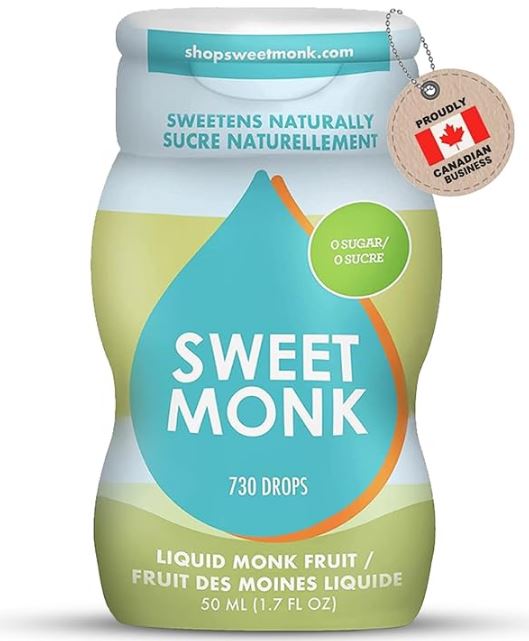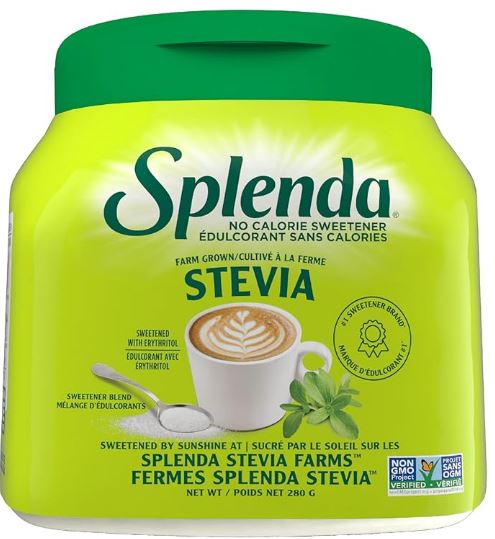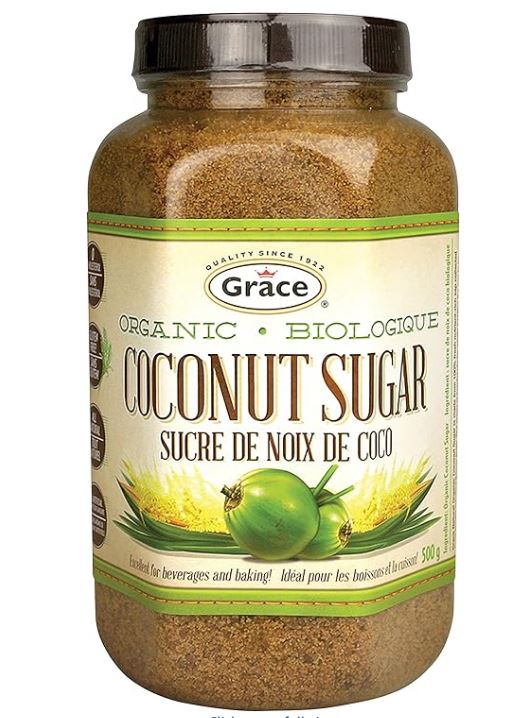
SWEET MONK ARTIFICIAL SWEETNER
The Top 3 Best Sweeteners: Types, Comparisons, and Health Insights
Sweeteners available today fall into several main categories: natural sweeteners, artificial sweeteners, sugar alcohols, and novel low-calorie alternatives. Here’s a concise overview of each group and a detailed look at the top three sweeteners commonly found on the market.
1. Natural Sweeteners
Natural sweeteners are derived from plants or animals. Popular examples include:
- Table sugar (sucrose): Extracted from sugarcane or sugar beets.
- Honey: Produced by bees, often used in beverages and baking.
- Maple syrup: Sourced from the sap of maple trees.
- Agave nectar: Made from the agave plant, known for its mild taste and high fructose content.
- Stevia: A zero-calorie sweetener from the stevia plant, much sweeter than sugar and suitable for calorie or blood sugar management.
- Monk fruit (luo han guo): Derived from a small Asian melon, also zero-calorie and significantly sweeter than sugar.
These natural options are favored by those seeking to reduce calorie intake or manage blood sugar levels.
2. Artificial Sweeteners
Artificial sweeteners are chemically synthesized and typically far sweeter than sugar. Common types include:
- Aspartame: Found in products like Equal and NutraSweet.
- Sucralose: Marketed as Splenda, notable for its heat stability.
- Saccharin: Used in Sweet’N Low, with a long history of use.
- Acesulfame potassium (Ace-K): Often blended with other sweeteners.
They are calorie-free and popular in diet and sugar-free products. However, their taste and long-term safety are sometimes debated, and some individuals may be sensitive to their aftertastes.
3. Sugar Alcohols
Sugar alcohols are either naturally present in fruits or manufactured from sugars. Examples include:
- Xylitol
- Erythritol
- Sorbitol
- Maltitol
These sweeteners are lower in calories than sugar and have a reduced impact on blood glucose, making them suitable for people with diabetes. Erythritol is well-tolerated and common in keto products, while xylitol is recognized for dental benefits but is toxic to dogs. High consumption can cause digestive discomfort.
4. Novel Sweeteners
Newer options like allulose and tagatose mimic the taste of sugar with minimal calories and little effect on blood sugar. Blends, such as erythritol with stevia or monk fruit, are also increasingly popular for a balanced taste and fewer drawbacks.
Top 3 Sweeteners on Amazon: Price & Health Comparison
The most popular and widely available sweeteners on Amazon are Stevia, Monk Fruit, and Coconut Sugar. Here’s how they compare:
| Sweetener | Average Price (per lb) | Calories | Glycemic Index | Key Health Benefits | Notes & Considerations |
|---|---|---|---|---|---|
| Stevia | $8–$14 | 0 | ~0 | Zero calories, does not raise blood sugar, plant-based, may support microbiome diversity | 200–300x sweeter than sugar, may have licorice aftertaste, good for diabetics and weight control |
| Monk Fruit | $10–$18 | 0 | ~0 | Zero calories, no blood sugar impact, contains antioxidants, plant-based | 150–200x sweeter than sugar, often blended with erythritol, suitable for diabetics and weight management |
| Coconut Sugar | $6–$10 | ~15/tsp | 35–40 | Lower glycemic index, contains minerals (iron, zinc, calcium, potassium), less processed | Not calorie-free, similar calories/fructose to sugar, moderation needed |
*Prices are approximate and may vary by brand and packaging.
Links to buy at a Discount Price at Amazon :
- Stevia :

2. Monk Fruit :

3: Coconut Sugar

Health Benefits and Considerations
- Stevia: Zero-calorie, plant-based, does not spike blood sugar, may benefit gut microbiome diversity. Some people notice a licorice-like aftertaste.
- Monk Fruit: Zero-calorie, contains antioxidants, does not impact blood sugar, often blended with other sweeteners for better taste and texture.
- Coconut Sugar: Less processed, contains trace minerals, lower glycemic index than table sugar, but still contains calories and fructose.
Health Risks of Artificial Sweeteners
While artificial sweeteners are widely used, research highlights several potential health concerns when consumed regularly or in high amounts:
- Cardiovascular Risk: Higher intake is linked to increased risk of heart disease, stroke, and other cardiovascular issues.
- Metabolic Effects: Some studies suggest associations with metabolic syndrome and a higher risk of type 2 diabetes.
- Weight and Appetite: Paradoxically, some research links artificial sweeteners to weight gain and increased appetite.
- Gut Health: Certain types (e.g., saccharin, sucralose) may disrupt the gut microbiome, but evidence is mixed.
- Neurologic/GI Symptoms: Some people report headaches, taste changes, bloating, or diarrhea (especially with sugar alcohols).
- Blood Sugar Regulation: Possible impairment of blood sugar control and increased insulin resistance.
- Cancer Risk: Most recent research shows no strong link between artificial sweeteners and cancer in humans.
| Health Concern | Evidence Level | Notes |
|---|---|---|
| Cardiovascular disease | Strong | Especially with high intake |
| Metabolic syndrome/diabetes | Moderate | Long-term use increases risk |
| Weight gain/appetite | Moderate | Some studies show association |
| Gut microbiome disruption | Emerging | Mixed evidence, more research needed |
| Neurologic/GI symptoms | Documented | Headache, GI upset, taste changes |
| Cancer | Weak/None | No strong evidence in humans |
Conclusion:
Artificial sweeteners are generally recognized as safe when used in moderation, but excessive or long-term use may increase risks for cardiovascular disease, metabolic syndrome, weight gain, and gut health disturbances. Most health authorities recommend limiting intake and choosing naturally unsweetened foods when possible.
References:
https://mamavation.com/food/best-sweeteners-ranked-2023.html
https://www.goodrx.com/well-being/diet-nutrition/sweeteners
https://www.cancer.gov/about-cancer/causes-prevention/risk/diet/artificial-sweeteners-fact-sheet
https://www.mayoclinic.org/healthy-lifestyle/nutrition-and-healthy-eating/in-depth/artificial-sweeteners/art-20046936
https://www.healthline.com/nutrition/healthy-natural-sweeteners
https://www.health.harvard.edu/heart-health/sugar-substitutes-new-cardiovascular-concerns
https://www.bmj.com/content/378/bmj-2022-071204
https://www.healthline.com/nutrition/artificial-sweeteners-good-or-bad
https://nutritionsource.hsph.harvard.edu/healthy-drinks/artificial-sweeteners/
https://www.canada.ca/en/health-canada/services/food-nutrition/food-safety/food-additives/sugar-substitutes.html

